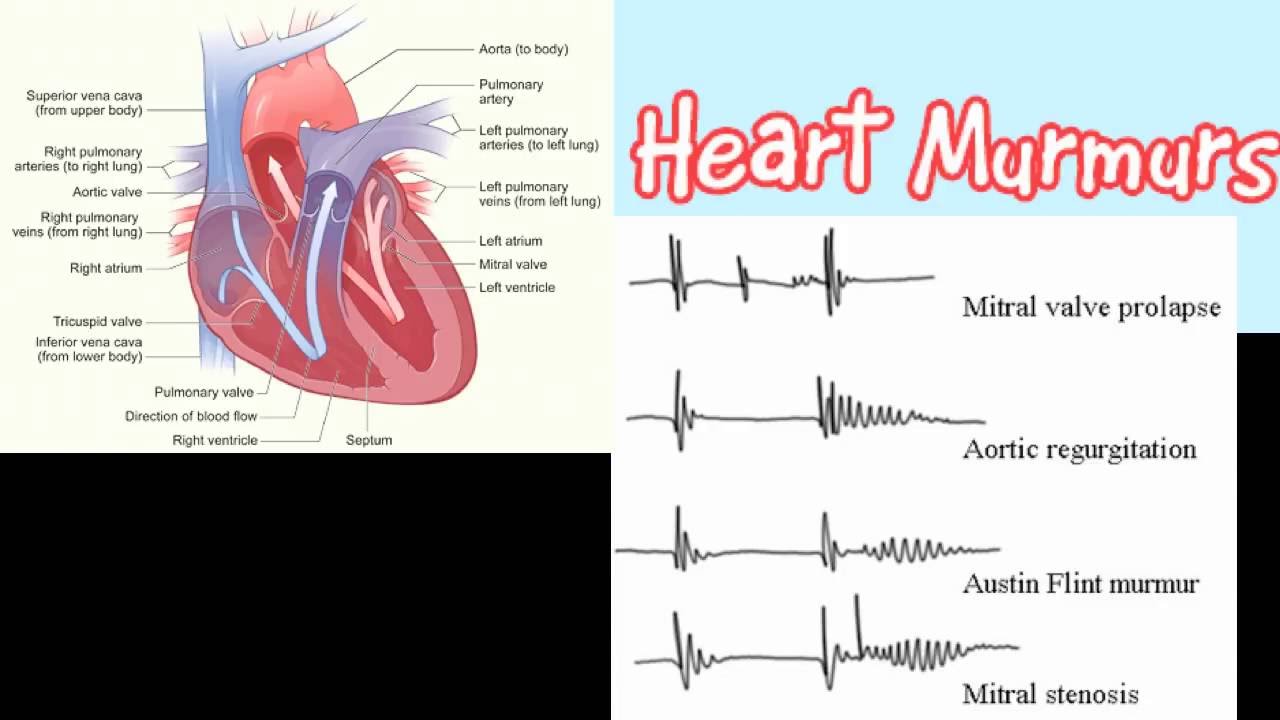Common conditions can make your heart beat faster and lead to heart murmurs. They can happen if you're pregnant, or if you have:
Anemia
High blood pressure
Overactive thyroid
Fever
A murmur could also be a problem with a heart valve. The valves close and open to let blood flow through the heart's two upper chambers -- called the atria -- and two lower chambers -- the ventricles. Valve problems include:
Mitral valve prolapse:
Normally, your mitral valve closes completely when the lower left chamber of your heart contracts. It stops blood from flowing back into your upper left chamber. If part of that valve balloons out so it doesn't close properly, you have mitral valve prolapse. This causes a clicking sound as your heart beats. It's fairly common and often not serious. But it can lead to the blood flowing backward through the valve, which your doctor may call regurgitation.
Mitral valve or aortic stenosis:
Your mitral and aortic valves are on the left side of your heart. If they narrow, which doctors call stenosis, your heart has to work harder to pump blood to the rest of your body. If left untreated, it can wear out your heart and lead to heart failure. You might be born with this. It can also happen as part of aging, or because of scarring from infections such as rheumatic fever.
Aortic sclerosis and stenosis:
One in three elderly people have a heart murmur because of the scarring, thickening, or stiffening of their aortic valve. That’s aortic sclerosis. It's usually not dangerous, since the valve can work for years after the murmur starts. It’s usually seen in people who have heart disease. But the valve can narrow over time. This is called stenosis. It can lead to chest pain, shortness of breath, or you may pass out. Sometimes, the valve needs to be replaced.



 Contact Us
Contact Us






 Hospitals
Hospitals
 Doctors
Doctors
 Diagnostic
Diagnostic
 Pharmacy
Pharmacy
 Health Tips
Health Tips
 Blog
Blog

























Comments